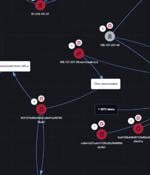Security News

Russia-aligned hacktivists persistently target key public and private organizations in the Netherlands with distributed denial of service (DDoS) attacks, causing access problems and service...

A group of pro-Ukrainian hacktivists has claimed responsibility for the September breach of Russian security company Doctor Web (Dr.Web). [...]

A hacktivist group known as Twelve has been observed using an arsenal of publicly available tools to conduct destructive cyber attacks against Russian targets. "Rather than demand a ransom for...

A hacktivist group known as Head Mare has been linked to cyber attacks that exclusively target organizations located in Russia and Belarus. "Head Mare uses more up-to-date methods for obtaining...

Israel-based hacktivists are taking credit for an ongoing internet outage in Iran. "In the coming minutes we will attack systems and internet providers in Iran," WeRedEvils said on Telegram yesterday.

The US government has imposed sanctions on two Russian cybercriminals for cyberattacks targeting critical infrastructure. [...]

The Spanish authorities have arrested three individuals for using DDoSia, a distributed denial of service platform operated by pro-Russian hacktivists, to conduct DDoS attacks against governments...

Your profile can be used to present content that appears more relevant based on your possible interests, such as by adapting the order in which content is shown to you, so that it is even easier for you to find content that matches your interests. Content presented to you on this service can be based on your content personalisation profiles, which can reflect your activity on this or other services, possible interests and personal aspects.

The U.K.'s National Cyber Security Centre and other international cyber authorities, including the Federal Bureau of Investigation, have warned about pro-Russia hacktivist attacks targeting providers of operational technology. Pro-Russia hacktivists exploit both virtual network computing remote access software and default passwords to access the software components of internet-exposed industrial control systems associated with OT devices.

The US government is warning that pro-Russian hacktivists are seeking out and hacking into unsecured operational technology systems used to disrupt critical infrastructure operations. Water plants use OT devices to manage water treatment, distribution, and pressure to provide a continuous and safe water supply.